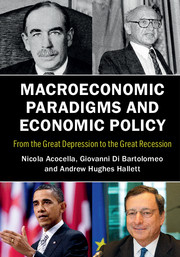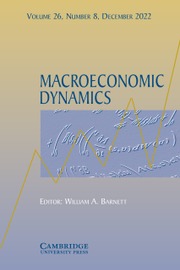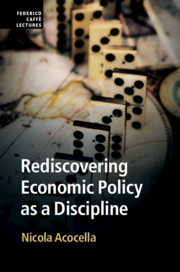The Theory of Economic Policy in a Strategic Context
In developing a new and highly innovative theory of economic policy, this book deals with conflicts between strategic actions by public and private agents. It builds on the Lucas critique but also applies the tools introduced by Tinbergen and Theil to dynamic policy games, and from there derives a new theory of economic policy. Its main propositions describe such properties in the models currently used for policy-making as neutrality and equilibrium existence, uniqueness, and multiplicity. These properties are key to understanding the impact of concepts such as rational expectations, time inconsistency, communication and the use of policy announcements. As the numerous examples show, they are useful both for model building and for devising optimal institutions. The Theory of Economic Policy in a Strategic Context is an essential but accessible tool for economic researchers involved in policy questions.
- A new theory of economic policy which reincorporates elements of the Tinbergen theory of economic policy into more modern approaches
- Provides a formal mathematical game-theoretic treatment of the subject
- The mathematically rigorous presentation of the theory is complemented with practical examples
Product details
December 2012Hardback
9781107023864
363 pages
235 × 155 × 22 mm
0.63kg
16 b/w illus. 4 tables
Available
Table of Contents
- List of figures
- List of tables
- Preface
- Common symbols
- 1. An overview: the realm of economic policy
- Part I. The Classical Theory of Economic Policy:
- 2. Statics
- 3. Dynamics
- Part II. From the Classical to the New Theory of Economic Policy:
- 4. The Lucas critique
- 5. Policy games: an introduction
- Part III. The New Theory of Economic Policy: Statics:
- 6. A theory of strategic conflict: foundations
- 7. From individual players to system controllability
- 8. Conflicts and coordination among groups
- 9. Announcements as a coordination mechanism
- Part IV. The New Theory of Economic Policy: Dynamics:
- 10. Controllability in a strategic dynamic setting
- 11. Dynamic policy games with rational expectations
- 12. Credibility, dynamic controllability and rational expectations
- 13. Expectations and target coordination: institutional aspects
- 14. A summary and round-up of conclusions
- References.







